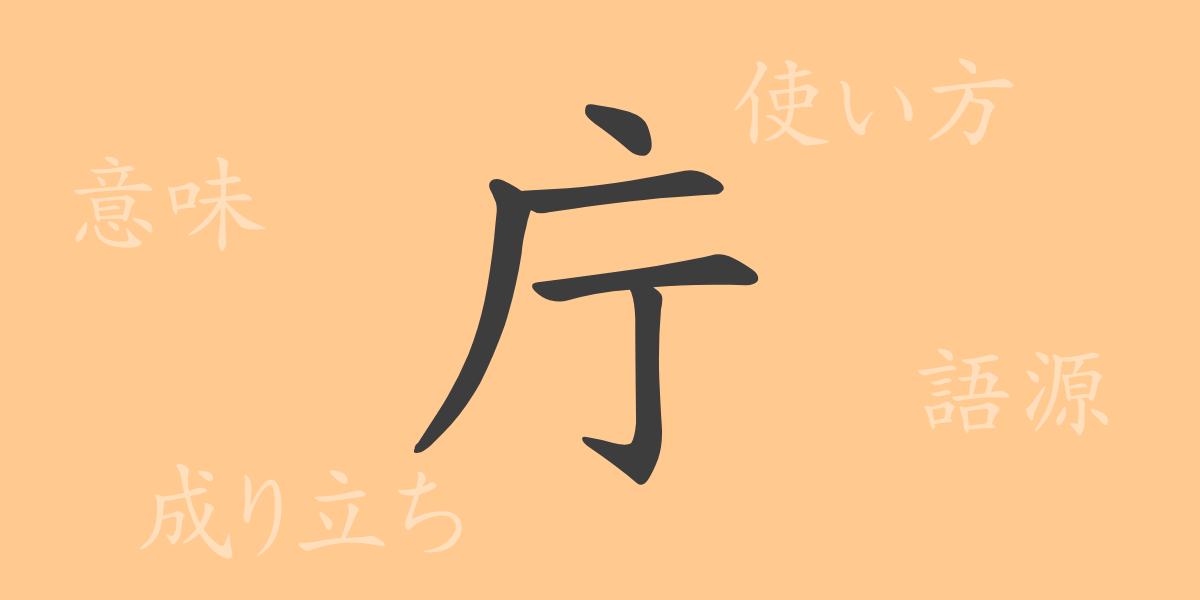In Japanese culture, kanji do more than form words; they deepen meanings, symbolize traditions, and permeate our daily lives, often without our conscious awareness. This article focuses on the kanji ‘庁(チョウ)’, exploring its history, meanings, and uses, from its role in business contexts to its presence in public institutions. We’ll delve into how ‘庁’ is integrated into expressions and idioms that reflect the beauty of the Japanese language.
Origins of ‘庁(チョウ)’
The kanji ‘庁’ originated from ancient Chinese script. It was initially used to denote public buildings such as courts and official agencies. Comprising the ‘广’ radical, indicating a roof, and ‘丁’, symbolizing central authority or public institutions, ‘庁’ encapsulates the characteristics of governmental or public spaces in its design.
Meaning and Usage of ‘庁(チョウ)’
‘庁’ primarily refers to governmental or public agencies. It is commonly used in terms like ‘省庁(しょうちょう)’ (ministries), ‘市庁(しちょう)’ (city halls), and ‘区庁(くちょう)’ (ward offices), denoting various administrative organizations. In business contexts, it might also refer to specific departments or offices within a corporation. The character conveys a sense of official authority and formality, making it prevalent in official documents, signs, and websites.
Readings, Stroke Count, and Radical of ‘庁(チョウ)’
The kanji ‘庁’ offers interesting details regarding its pronunciation and structure:
- Readings: On’yomi ‘チョウ’; there are no common kun’yomi readings.
- Stroke Count: ‘庁’ consists of 9 strokes.
- Radical: The radical is ‘广’, associated with buildings or houses.
Idioms and Phrases Using ‘庁(チョウ)’
The usage of ‘庁’ in various idioms and phrases reflects its extensive range:
- 官庁街(かんちょうがい): An area where government ministries and public agencies are concentrated.
- 市庁舎(しちょうしゃ): The building that houses municipal administrative functions, or city hall.
- 庁議(ちょうぎ): A meeting within a government ministry or public agency.
These terms play a significant role in understanding the administrative system and culture of Japan.
Conclusion on ‘庁(チョウ)’
The kanji ‘庁’ symbolizes Japan’s public systems and organizations, from its form to its meanings and contexts of use. The phrases and idioms that include this character are indispensable for deepening our understanding of Japanese society and culture. Learning about the history and meanings behind each kanji is key to appreciating the richness of the Japanese language.

























